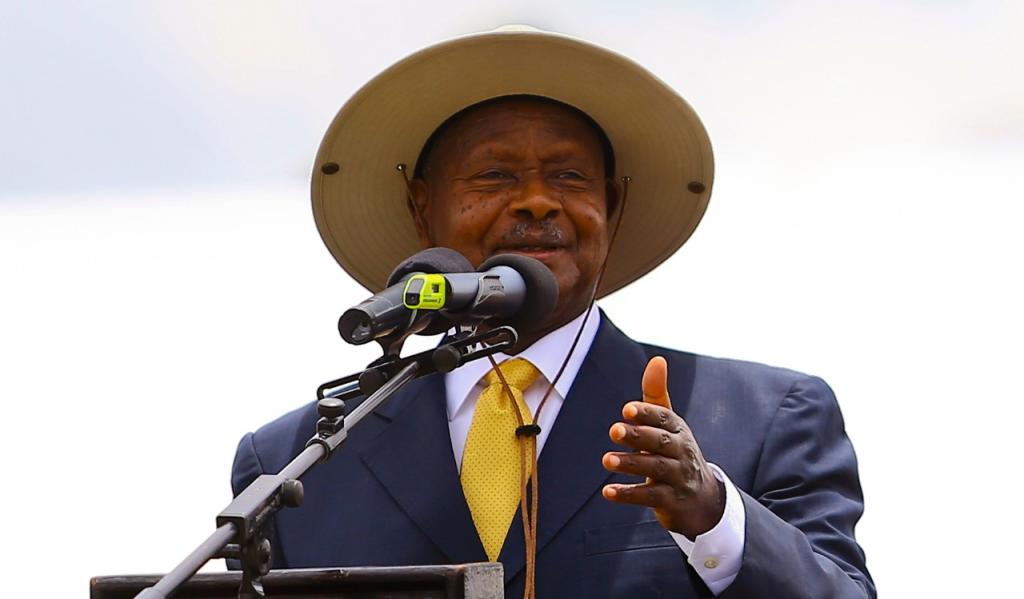
President Yoweri Museveni has advised Ugandans to abandon subsistence farming in favor of commercial agriculture in order to create riches.
He explained that the government had created an enabling atmosphere for them to grow, including favorable policies and peace.
“The patriotic National Resistance Army (NRA)/UPDF has been able to transform Uganda from a state of anarchy and lawlessness into a bastion of peace and stability.” We’ve also prioritized infrastructure development across the country and followed a private-sector-led agenda.” Museveni stated this.
He stated that, in contrast to the previous administration, which hindered the private sector, the NRM Government has implemented favorable policies and built the necessary infrastructure to encourage private entrepreneurship.
Yesterday 20th July 2023, the President spoke during the launching of a new production unit at Hariss International’s headquarters on Ttula Road in Kampala.
Museveni said in a speech read for him by Vice President Jessica Alupo that the private sector can easily build the country without government money if given the correct environment.
“The government must work on infrastructure to reduce the cost of doing business in the economy so that the private sector can profit,” he said. “As a result, I want to commend Hariss International for taking advantage of this private sector-friendly environment to create jobs for the people of Uganda.” Museveni stated that the Ugandan economy is modernizing and moving toward industrialization.
He stated that modernization entails replacing subsistence sector modes of production, which only meet the demand for food, with commercial agriculture, industries, and ICT.
“These are the four sectors that families and businesses can choose from to create jobs and wealth,” he stated.
Starting as a small confectionery manufacturer under the RIHAM brand name, the company has expanded to become one of Uganda’s top food and beverage makers.
“I congratulate you and the Hariss International team on this significant achievement that has established you as a major player in the drink and beverage sector,” he said.
Yasser Ahmed, the company’s chairperson and founder, spoke at the ceremony and praised President Museveni for the favorable policies that had aided their success.
Ahmed stated that this was reciprocated by the creation of jobs, which he stated currently totaled 2,000 directly and 5,000 indirectly.
Furthermore, he stated that the corporation has expanded from a little tax contribution of sh40 billion to today sh150 billion.
Ahmed stated that innovation, hard effort, and an unwavering pursuit of quality across all production lines have all contributed to the company’s success.
In exchange, he claims they have acquired the trust of the market not only locally but also regionally.
However, Ahmed stated that in order for them to continue growing, they needed to be supported in order to enhance their capacity, particularly in the manufacture of local raw materials, which he claimed were expensive and made them less competitive in comparison to their regional rivals.
He stated, for example, that while they have resorted to assisting local mango growers by purchasing their fruits, this is insufficient to meet their capacity.
“One method could be to give farmers seedlings so they can grow more.” “We believe that more research should be conducted in order to develop additional varieties to support the existing demand,” Ahmed said, adding that there is also a need to assist sugar makers in producing competitively in order to meet demand for their production.
In order to assist the plant in lowering its production costs, he encouraged the government to help extend incentives, which were never given to them as part of the presidential commitment that promised a tax break.
As a result, he claims, they have had to borrow heavily to fund the company’s growth. For example, he stated that supporting the plant’s construction had cost them a total of $100 million.



